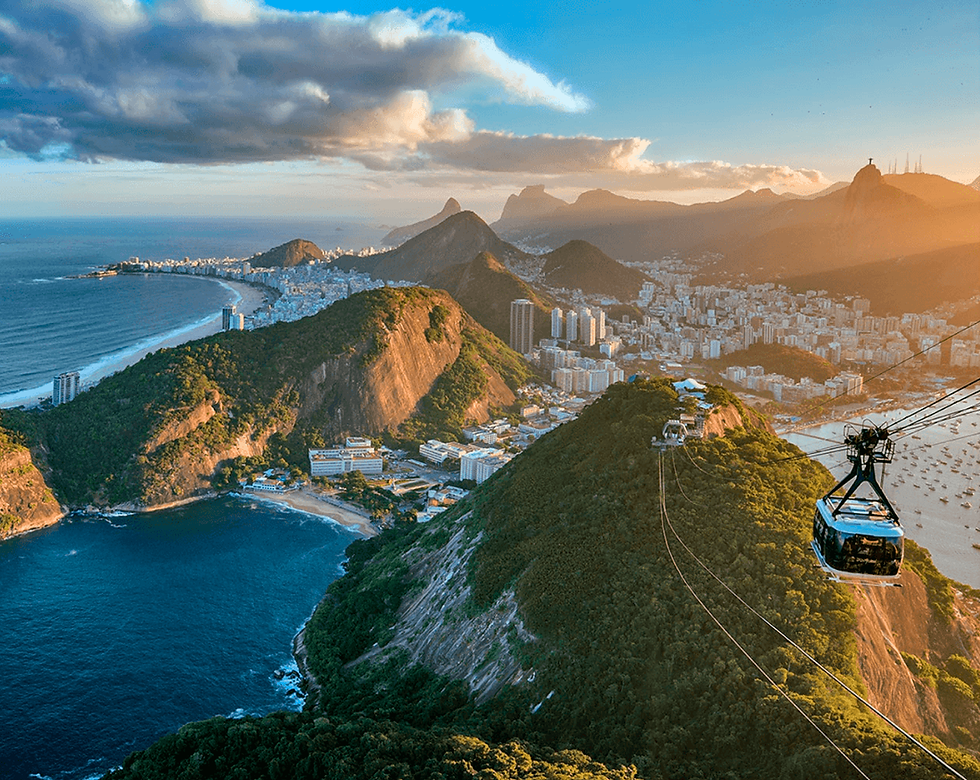Trash needs to be thrown in the trash! Even leftover fruit!
- guiarodrigoindio
- Jun 5
- 3 min read
Despite what it may seem, organic waste such as fruit scraps can also cause pollution, and here we'll explain how this can happen, since they are materials that decompose easily in nature.

Hiking is undoubtedly one of the best experiences, precisely because it puts you in direct contact with nature and your own limits. These environments are usually composed of forests and mountains that present a very well-defined biome between wildlife and native flora. And if we want to preserve the environment and maintain the landscape we cherish so much, we must take certain precautions. When hiking, we often carry fruits and foods such as bread and even sweets (which, in the case of fruits, are uncommon in the region), as well as processed foods. By throwing this type of food waste into the environment, the decomposition of these materials alters the soil's pH and nutrient levels, harming native plants.
Altering soil pH can trigger a chain reaction in the local biome, as everything is in perfect balance. This can lead to the death of plants or, in the case of discarded seed foods, even the introduction of plants that harm native plants. Another problem that can occur is that wild animals may feed on these foods, which can harm their health and cause various environmental imbalances.
Everything we take on a trail should come back with us, and that includes literally everything! Just as we treat or should treat inorganic waste like cans, plastic bottles, packaging, and other debris, we should do the same with fruit peels and food scraps. We should store them in plastic bags and carry them with us for proper disposal, thus avoiding harming the environment. Regardless of the environment we find ourselves in, trash should always be thrown away in a trash can or bin. Disposing of trash in the bin is a matter of education and awareness, as the trash we generate is our responsibility.

DECOMPOSITION: The term "decomposition time" refers to the time it takes for products to decompose and disappear from the environment, and varies depending on the nature of the material. In addition to the long decomposition period, many materials harm the environment and the health of people and animals. This occurs when they are disposed of improperly. Much of the packaging we consume can be recycled and re-enters the production chain. In this way, a large amount of waste that would take thousands of years to decompose is eliminated from the environment. Recycling these materials helps reduce the amount of waste generated and ensures better use of the planet's natural resources.

SMALL ACTIONS, BIG IMPACTS: When people implement small actions for environmental conservation in their daily lives, significant changes occur in the world. These actions include: not practicing illegal hunting or fishing; not feeding wild animals; practicing responsible wildlife tourism; participating in environmental education activities; not purchasing wild animals not authorized by the Brazilian Institute of Environment and Renewable Natural Resources (IBAMA); reporting illegal hunting or wildlife trade, etc.
Preservation is necessary: Let's take care of nature!
When we're on the trail, on the beach, at the lookout, or anywhere we're in contact with nature, we're visitors. And like any conscientious visitor, our duty is to respect, preserve, and care for it .
Don't litter. Not even organic trash!
Many people think that throwing away fruit peels, seeds, or organic waste isn't a problem. But it is!
Banana, orange, and apple peels and seeds are not part of the local ecosystem , and can attract animals, disrupt wildlife, and even cause soil problems.
Furthermore, they take much longer to decompose than we imagine.
What NOT to do:
Throw away trash, cigarette butts, plastics, containers, bottle caps, or any other waste, even “biodegradable” waste.
Make campfires outside authorized areas.
Remove plants, flowers, stones or animals.
Feed the wild animals.
To do:
Always carry a bag for your trash (and if you can, pick up any trash you find along the way).
Even save peels, seeds, and organic waste to dispose of properly in the city.
Use reusable bottles, reduce plastics and packaging.
Respect the trails, stay on marked paths, and don't take shortcuts.
Tips for staying on top of the trails:
Practice the concept of "Leave No Trace" .
When in doubt, remember: "What goes around comes around."
Let's preserve today so more people can experience it tomorrow.
Did you like these tips? At Rodrigo Índio Tours , we believe that tourism and nature should go hand in hand responsibly. Every trail, viewpoint, and landscape belongs to everyone.
If you want to transform your trip into a unique experience, come discover our tours, trails, experiences, and expeditions!






Comments